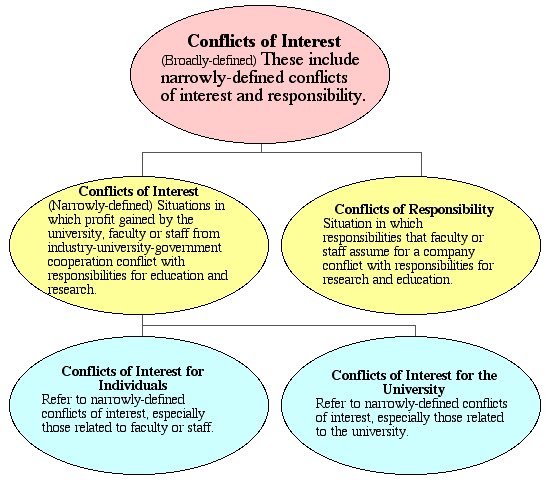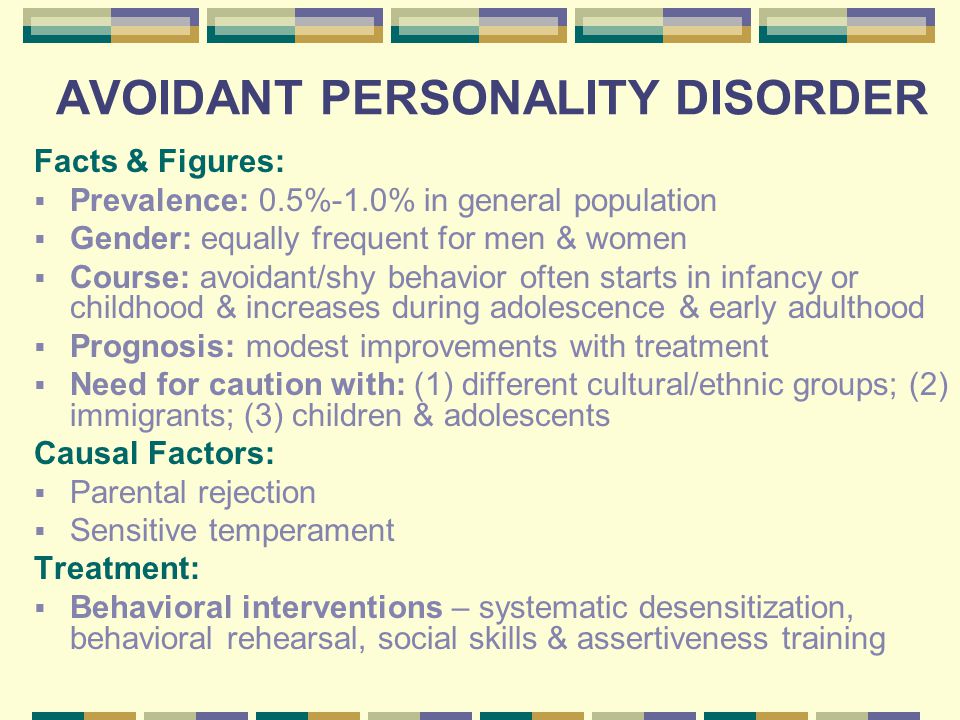Fear of conflict
Why It's Harmful, How to Overcome It & More
Imagine this scenario: You’ve been working hard on a presentation for several weeks, spending extra hours trying to get everything just right. You’ve overseen every detail and even woke up early to prepare for today’s meeting with your boss.
Now imagine a co-worker interjecting and taking all the credit for your work. But instead of being in touch with your anger and (rightly) speaking up, you choose to silently withdraw.
Being conflict avoidant means exactly that: being afraid of possible disagreements at all costs.
Aside from our work life, avoiding conflict can manifest in our romantic relationships, friendships, and even family dynamics.
While getting out of these damaging patterns is tricky, there are ways to move forward in the face of our fears and express our emotions authentically.
Conflict avoidance is a type of people-pleasing behavior that typically arises from a deep rooted fear of upsetting others.
Many of these tendencies can be traced back to growing up in an environment that was dismissive or hypercritical.
People who respond to conflict this way often expect negative outcomes and find it difficult to trust the other person’s reaction.
In other words, asserting your opinion can seem scary or unnerving.
You prefer to be seen as the “nice person” at work, for example, or may shy away from open, healthy conflict so as not to rock the boat.
In a relationship, this can look like going silent on a partner, changing the subject, or enduring uncomfortable situations instead of expressing issues openly.
Here are more examples of how this may manifest:
- stonewalling, or denying an issue exists by ignoring it
- fear of disappointing others
- deliberately sidestepping conversations
- silently resenting unresolved issues
When you avoid the slightest disagreement, you’re compromising your true feelings and storing up frustration that can end up negatively affecting your health.
One 2013 study found that bottling up our emotions can increase the risk of premature death, including death from cancer.
Laughing nervously or plastering a fake smile on our face instead of acknowledging distressing emotions can also lead to feelings of loneliness and depression.
Being conflict avoidant also impacts our relationships because we’re cutting off all honest communication with the other person.
While avoidance sometimes seems like the best way to deal with conflict, in the long run it ends up harming our intimacy.
Recognize any of the above signs in yourself? The below tips can help you deal with an issue more assertively.
Reframe confrontation
Disagreeing with someone doesn’t necessarily mean “fighting.” Keep in mind that it’s not about blaming the other person or proving who’s right and wrong in a given situation.
Conflict resolution is about standing up for yourself and communicating when you feel angry or frustrated.
It’s also about ensuring that problematic issues (like the one with your co-worker) are dealt with so they don’t happen again in the future.
Make a plan
Having a plan set before confronting someone can help you feel more prepared in the moment.
Rehearse concise points you’d like to get across to a boss or colleague so you’ll feel confident when addressing them.
Clearly define what you’d like to resolve before the confrontation and write down canned, factual responses to use when needed (“I worked late for the past 2 weeks while my co-worker didn’t turn in their share of the research”).
Use your senses to quickly relieve stress
Stay centered in a distressing situation by focusing and drawing upon your sensory toolbox: sight, sound, touch, taste, and smell.
This will allow you to remain relaxed and in control of yourself during tense moments.
If you’re a visual person, for example, you can relieve stress by closing your eyes and imagining soothing images.
Similarly, if you’re more comforted by smells, you can keep an essential oil on hand to take a quick whiff of when you’re feeling anxious.
Recognize and manage your feelings
Being aware of how your emotions impact you can help you gain a greater understanding of yourself and others. Before confronting someone, try examining and questioning your feelings.
Instead of trying to sedate emotions like anger, sadness, or fear, try looking at them through the lens of self-compassion, and allowing yourself to see your negative thoughts with empathy.
You can try practicing the following affirmations:
- “It’s OK to feel however I’m feeling at this moment — my emotions are valid.”
- “I am worthy and deserving of being heard.”
- “All of my experiences (good and bad) give me the space to grow.”
Resolve issues in real-time
Rather than endlessly ruminate and allow conflicts to fester in your head, try taking a more assertive approach.
You can start by stating the issue non-emotionally and using fact-based sentences like, “It appears I worked very hard on this project and yet my name was left out of the presentation.”
Avoid being accusatory or defensive when approaching the co-worker who took all the credit for your work.
Instead, say “I’d appreciate it if, going forward, we use both our names on the project and include each other on all emails to our supervisor.”
While it can be tempting to bottle up feelings like anger and frustration by not rocking the boat, conflict-avoiding tendencies can take a toll on your mental health.
Leaving conflicts unresolved leads to pent-up frustration and a greater sense of loneliness that can build up over time.
Speaking to a qualified therapist can help you learn how to better manage your negative emotions. You can work together on resolving conflicts more productively.
Some form of conflict is a normal part of our personal and professional lives.
While it’s OK to never be completely comfortable with confrontation, being able to resolve issues effectively means accepting it as a healthy part of communicating with others.
Remember that disagreeing provides deeper understanding and makes it easier to connect with our friends, partners, and co-workers.
Learning how to confront someone assertively won’t happen overnight. But you can still take small steps each day toward feeling more comfortable facing your fears and speaking up for yourself.
Cindy Lamothe is a freelance journalist based in Guatemala. She writes often about the intersections between health, wellness, and the science of human behavior. She’s written for The Atlantic, New York Magazine, Teen Vogue, Quartz, The Washington Post, and many more. Find her at cindylamothe.com.
Why It's Harmful, How to Overcome It & More
Imagine this scenario: You’ve been working hard on a presentation for several weeks, spending extra hours trying to get everything just right.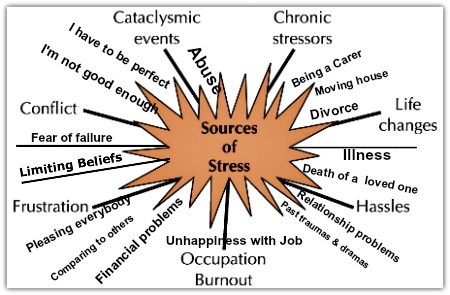 You’ve overseen every detail and even woke up early to prepare for today’s meeting with your boss.
You’ve overseen every detail and even woke up early to prepare for today’s meeting with your boss.
Now imagine a co-worker interjecting and taking all the credit for your work. But instead of being in touch with your anger and (rightly) speaking up, you choose to silently withdraw.
Being conflict avoidant means exactly that: being afraid of possible disagreements at all costs.
Aside from our work life, avoiding conflict can manifest in our romantic relationships, friendships, and even family dynamics.
While getting out of these damaging patterns is tricky, there are ways to move forward in the face of our fears and express our emotions authentically.
Conflict avoidance is a type of people-pleasing behavior that typically arises from a deep rooted fear of upsetting others.
Many of these tendencies can be traced back to growing up in an environment that was dismissive or hypercritical.
People who respond to conflict this way often expect negative outcomes and find it difficult to trust the other person’s reaction.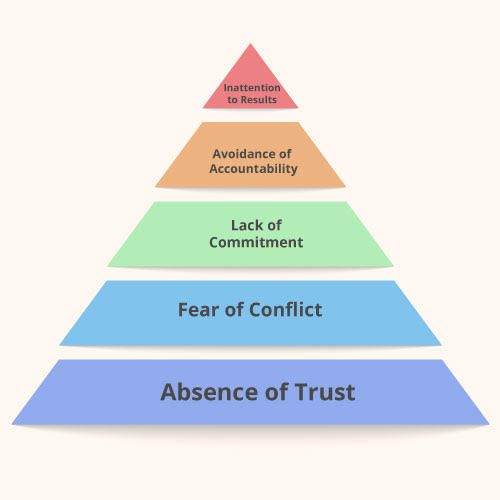
In other words, asserting your opinion can seem scary or unnerving.
You prefer to be seen as the “nice person” at work, for example, or may shy away from open, healthy conflict so as not to rock the boat.
In a relationship, this can look like going silent on a partner, changing the subject, or enduring uncomfortable situations instead of expressing issues openly.
Here are more examples of how this may manifest:
- stonewalling, or denying an issue exists by ignoring it
- fear of disappointing others
- deliberately sidestepping conversations
- silently resenting unresolved issues
When you avoid the slightest disagreement, you’re compromising your true feelings and storing up frustration that can end up negatively affecting your health.
One 2013 study found that bottling up our emotions can increase the risk of premature death, including death from cancer.
Laughing nervously or plastering a fake smile on our face instead of acknowledging distressing emotions can also lead to feelings of loneliness and depression.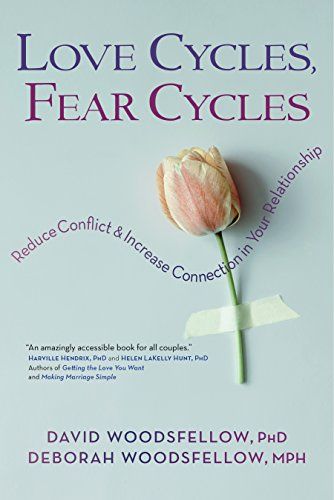
Being conflict avoidant also impacts our relationships because we’re cutting off all honest communication with the other person.
While avoidance sometimes seems like the best way to deal with conflict, in the long run it ends up harming our intimacy.
Recognize any of the above signs in yourself? The below tips can help you deal with an issue more assertively.
Reframe confrontation
Disagreeing with someone doesn’t necessarily mean “fighting.” Keep in mind that it’s not about blaming the other person or proving who’s right and wrong in a given situation.
Conflict resolution is about standing up for yourself and communicating when you feel angry or frustrated.
It’s also about ensuring that problematic issues (like the one with your co-worker) are dealt with so they don’t happen again in the future.
Make a plan
Having a plan set before confronting someone can help you feel more prepared in the moment.
Rehearse concise points you’d like to get across to a boss or colleague so you’ll feel confident when addressing them.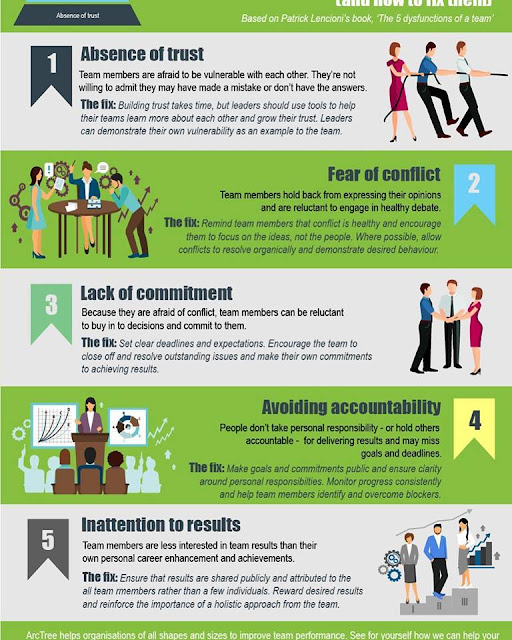
Clearly define what you’d like to resolve before the confrontation and write down canned, factual responses to use when needed (“I worked late for the past 2 weeks while my co-worker didn’t turn in their share of the research”).
Use your senses to quickly relieve stress
Stay centered in a distressing situation by focusing and drawing upon your sensory toolbox: sight, sound, touch, taste, and smell.
This will allow you to remain relaxed and in control of yourself during tense moments.
If you’re a visual person, for example, you can relieve stress by closing your eyes and imagining soothing images.
Similarly, if you’re more comforted by smells, you can keep an essential oil on hand to take a quick whiff of when you’re feeling anxious.
Recognize and manage your feelings
Being aware of how your emotions impact you can help you gain a greater understanding of yourself and others. Before confronting someone, try examining and questioning your feelings.
Instead of trying to sedate emotions like anger, sadness, or fear, try looking at them through the lens of self-compassion, and allowing yourself to see your negative thoughts with empathy.
You can try practicing the following affirmations:
- “It’s OK to feel however I’m feeling at this moment — my emotions are valid.”
- “I am worthy and deserving of being heard.”
- “All of my experiences (good and bad) give me the space to grow.”
Resolve issues in real-time
Rather than endlessly ruminate and allow conflicts to fester in your head, try taking a more assertive approach.
You can start by stating the issue non-emotionally and using fact-based sentences like, “It appears I worked very hard on this project and yet my name was left out of the presentation.”
Avoid being accusatory or defensive when approaching the co-worker who took all the credit for your work.
Instead, say “I’d appreciate it if, going forward, we use both our names on the project and include each other on all emails to our supervisor. ”
”
While it can be tempting to bottle up feelings like anger and frustration by not rocking the boat, conflict-avoiding tendencies can take a toll on your mental health.
Leaving conflicts unresolved leads to pent-up frustration and a greater sense of loneliness that can build up over time.
Speaking to a qualified therapist can help you learn how to better manage your negative emotions. You can work together on resolving conflicts more productively.
Some form of conflict is a normal part of our personal and professional lives.
While it’s OK to never be completely comfortable with confrontation, being able to resolve issues effectively means accepting it as a healthy part of communicating with others.
Remember that disagreeing provides deeper understanding and makes it easier to connect with our friends, partners, and co-workers.
Learning how to confront someone assertively won’t happen overnight. But you can still take small steps each day toward feeling more comfortable facing your fears and speaking up for yourself.
Cindy Lamothe is a freelance journalist based in Guatemala. She writes often about the intersections between health, wellness, and the science of human behavior. She’s written for The Atlantic, New York Magazine, Teen Vogue, Quartz, The Washington Post, and many more. Find her at cindylamothe.com.
Do not be afraid to conflict! | PSYCHOLOGIES
26,236
InterviewMan among people
Psychologies: Why are we afraid of conflict?
Andrei König: Our fear has only one reason: conflict is associated with negative feelings. This is getting out of your comfort zone. We don't like to leave it, it seems destructive. And since modern man does not have a culture of being in these destructive processes, he strives to be in comfort all the time and runs away from conflict.
But many people associate conflict with violence, scandals, shame...
Conflict doesn't mean hysterics, shouting and showdowns. This is a confrontation that is beneficial to all its parties. Everyone should practice this form of relationship from time to time. If someone violates your interests, you need to launch a confrontation. There are people who are conflict-free, trouble-free, who agree with everything. But they are the most traumatized: they do not have their own territory, energy, because others use all this. What does it look like? The man hit his finger, hurt himself - it hurts.
This is a confrontation that is beneficial to all its parties. Everyone should practice this form of relationship from time to time. If someone violates your interests, you need to launch a confrontation. There are people who are conflict-free, trouble-free, who agree with everything. But they are the most traumatized: they do not have their own territory, energy, because others use all this. What does it look like? The man hit his finger, hurt himself - it hurts.
Modern man does not try to cure his finger, he tries to avoid pain. He starts to blow, says: “Give me pain relief,” asks when it stops hurting. That is, for him, pain is a synonym for the word “problem”. As long as there is pain, there is a problem. Actually it is not. Pain is synonymous with healing. And the conflict is the same story.
Conflict is necessary when the system needs rapid development
When a person becomes uncomfortable, this does not mean at all that something is going wrong. This means that he is in a conflict that requires him to behave slightly differently than in normal constructive confidential communication. This is an adaptive response. But we don’t like it, and instead of adapting to the reality around us, we often try to just stop feeling bad.
This means that he is in a conflict that requires him to behave slightly differently than in normal constructive confidential communication. This is an adaptive response. But we don’t like it, and instead of adapting to the reality around us, we often try to just stop feeling bad.
But why does a conflict situation arise?
There are three types of situations that lead to conflict. The first is when our boundaries are violated: physical, psychological, whatever, and then we need to designate for the outside world where they pass. Literally and figuratively say: “No! You can’t go here, this is my territory!” This problem can be solved only through conflict, no other form of communication works here. The function of conflict here is to defend the boundaries.
The second situation is stagnation, when some problem needs to be solved in the system, but the participants do not have enough strength and motivation for this. For example, stagnation in family relationships: partners lose interest in each other. And then the conflict can give the energy that they lack. One, for example, changes, the second eventually does not stand up and explodes. They quarrel to the nines and eventually either disperse or agree. Oddly enough, more often they still agree, and relations are refreshed.
And then the conflict can give the energy that they lack. One, for example, changes, the second eventually does not stand up and explodes. They quarrel to the nines and eventually either disperse or agree. Oddly enough, more often they still agree, and relations are refreshed.
Sometimes relations cannot be established without entering into conflict
And finally, the third option - a conflict occurs when the system needs to develop very quickly. And the fastest growth occurs in an aggressive opposing environment. If we take it on a national scale, the highest rate of development of scientific and technical potential is observed during wars. The same is true at the level of interpersonal contacts. For example, when boys grow up, they learn very quickly to fight in competition for girls or to approach teachers at school by competing for grades.
Are there rules for conflict resolution?
The first thing to do is to stop being afraid of him. Secondly, one should not be afraid to spoil relations by entering into confrontation. Sometimes relationships cannot be established in any other way. We used to fight as kids to become friends later. For some reason, as adults, we forget about it. Who will need me if I am not able to indicate what I am valuable, what are my interests? Only when others begin to reckon with this, healthy relationships will arise. The third point: entering into a conflict, you need to clearly understand that you have a task that you are trying to resolve in this way. The task was solved - the conflict comes to naught. This is a healthy state of affairs. But when the parties do not understand their tasks, the conflict can drag on.
Secondly, one should not be afraid to spoil relations by entering into confrontation. Sometimes relationships cannot be established in any other way. We used to fight as kids to become friends later. For some reason, as adults, we forget about it. Who will need me if I am not able to indicate what I am valuable, what are my interests? Only when others begin to reckon with this, healthy relationships will arise. The third point: entering into a conflict, you need to clearly understand that you have a task that you are trying to resolve in this way. The task was solved - the conflict comes to naught. This is a healthy state of affairs. But when the parties do not understand their tasks, the conflict can drag on.
A long-term conflict is already a pathological situation. Then we spend too much energy on maintaining it, and there is no more strength left to solve the problem. Depression, psychosomatic disorders begin. Another typical variant is “couch-TV disease”, when a person is “nailed” to the sofa and TV and he says that he doesn’t need anything else in life. It is almost impossible to get out of this state on your own.
It is almost impossible to get out of this state on your own.
Isn't a respectful attitude towards the other party required?
What do you mean - respect for a person or for his point of view? These are different things. You can respect a person or not, but there can be no respect for someone else's point of view in a conflict. After all, what is respect? It means assigning high value. Conflict communication just assumes that we stop assigning high value to someone else's point of view. We fight her. If we begin to proceed from the interests of the other side in a conflict, we will always lose. The beauty of conflict is that it allows us to give back value to our own point of view. When we realize what is important for ourselves, we agree an order of magnitude faster than if we stand on ceremony and try to agree amicably.
Does this even apply to relationships with loved ones?
Of course. Crises are inevitable. For example, any couple has a crisis of the first year of marriage, due to the accumulation of differences. No matter how well the partners treat each other, no matter how they adjust, after about a year the stage of confrontation begins. Because they have become closer and, accordingly, hurt each other more often. And precisely in order to form a more careful attitude towards each other, they need to set boundaries: this is how uncomfortable I am, this is unpleasant. Throughout family life, partners go through crisis points and regulate relationships through conflict.
No matter how well the partners treat each other, no matter how they adjust, after about a year the stage of confrontation begins. Because they have become closer and, accordingly, hurt each other more often. And precisely in order to form a more careful attitude towards each other, they need to set boundaries: this is how uncomfortable I am, this is unpleasant. Throughout family life, partners go through crisis points and regulate relationships through conflict.
But we usually teach children to solve problems peacefully. So we teach them to suppress conflicts?
If parents tell a child not to show negative emotions, they are taught not to suppress conflict as such, but that conflict in this form is unacceptable in this family. And children are looking for other options - they learn to make trouble for someone on the sly, to cheat ... That is, by forbidding them some forms of conflict, we teach them to develop others. In fact, conflict is necessary for the child to learn to say no. How will he do it if he does not stand up for himself? Therefore, his conflicts with other children, with teachers and in general with the adult world are normal. In addition, children often come into conflict only to show that they are, their opinion is valuable. It is important for them to make sure that at least someone takes them into account. There are periods when children especially need it: at 5-7 years old, in adolescence. I would recommend that parents remember this and at least sometimes lose the child in disputes.
How will he do it if he does not stand up for himself? Therefore, his conflicts with other children, with teachers and in general with the adult world are normal. In addition, children often come into conflict only to show that they are, their opinion is valuable. It is important for them to make sure that at least someone takes them into account. There are periods when children especially need it: at 5-7 years old, in adolescence. I would recommend that parents remember this and at least sometimes lose the child in disputes.
About the expert
Andrey König — conflictologist, author of the Conflict Management methodology, personality development consultant, business coach, general director of the Moscow NLP Center.
Text: Galina Chermenskaya Photo Source: Getty Images
New on the site
Stop hating yourself: how to achieve real acceptance of your body
Should an adult child give money to a family?
“My boyfriend is not ready for children, and I am afraid that the clock is ticking”
“My stepfather harassed me, but my mother kept the relationship with him anyway”
If sex disappeared from the relationship: 9 ways to arouse desire
What your partner (not) should know: the opinion of a family counselor
A normal man of the 21st century: what is he? Part 2. Phallocentrism
Phallocentrism
Test: What kind of weather do you like - sunny, rainy or cloudy?
Fear of conflicts. Change your brain
Fear of conflict. Change your brain - change your life!WikiReading
Change your brain - change your life!
Amen Daniel
Contents
Fear of conflict
Anxiety is by definition a very unpleasant condition. Therefore, people with increased anxiety tend to try to avoid any situation in which they feel even more uncomfortable. First of all, it concerns conflicts. People with dysfunction of the basal ganglia in a conflict situation often “stony” and therefore try to get away from conflicts in every possible way. Unfortunately, the desire to avoid disagreements often does us a disservice in life.
Laurent
Laurent, the owner of the local delicatessen, hated quarrels. In addition, he was constantly plagued by feelings of tension and anxiety.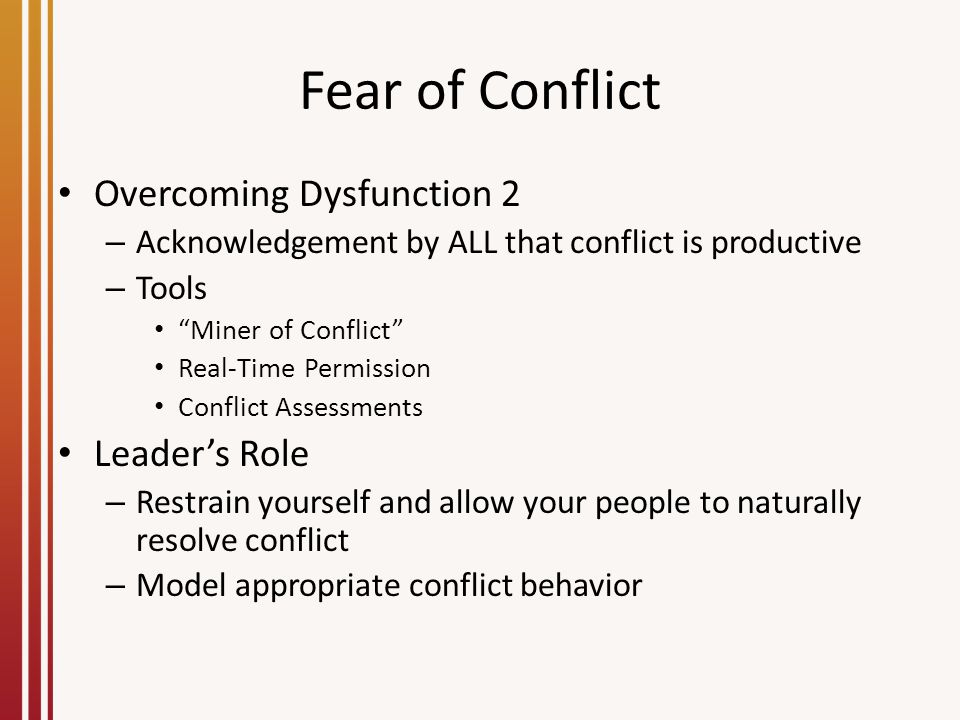 Because of these feelings and fear of conflict, Laurent did not fire employees who did not suit him. For the same reasons, he was sometimes too polite with those who did not hide their bad attitude towards him. Eventually Laurent came to hate his own insecurities. His problems created difficulties for him in family life. For many years, Laurent did not even stutter about what poisoned his life in the family. He just tried to hold back until one day he exploded. His treatment was reduced mainly to learning how to behave in a conflict situation.
Because of these feelings and fear of conflict, Laurent did not fire employees who did not suit him. For the same reasons, he was sometimes too polite with those who did not hide their bad attitude towards him. Eventually Laurent came to hate his own insecurities. His problems created difficulties for him in family life. For many years, Laurent did not even stutter about what poisoned his life in the family. He just tried to hold back until one day he exploded. His treatment was reduced mainly to learning how to behave in a conflict situation.
Betsy
Similarly, fear of conflict ruined Betsy's career. She worked for a local oil company. Being quite a capable girl, she quickly rose through the ranks until she got to a position in which she had to work with experienced and active men who were ready to compete and were not afraid of either conflict or confrontation. In dealing with them, Betsy was calm and very polite. She did her best to please them in order to avoid the anxiety that would overwhelm her if it came to open conflict.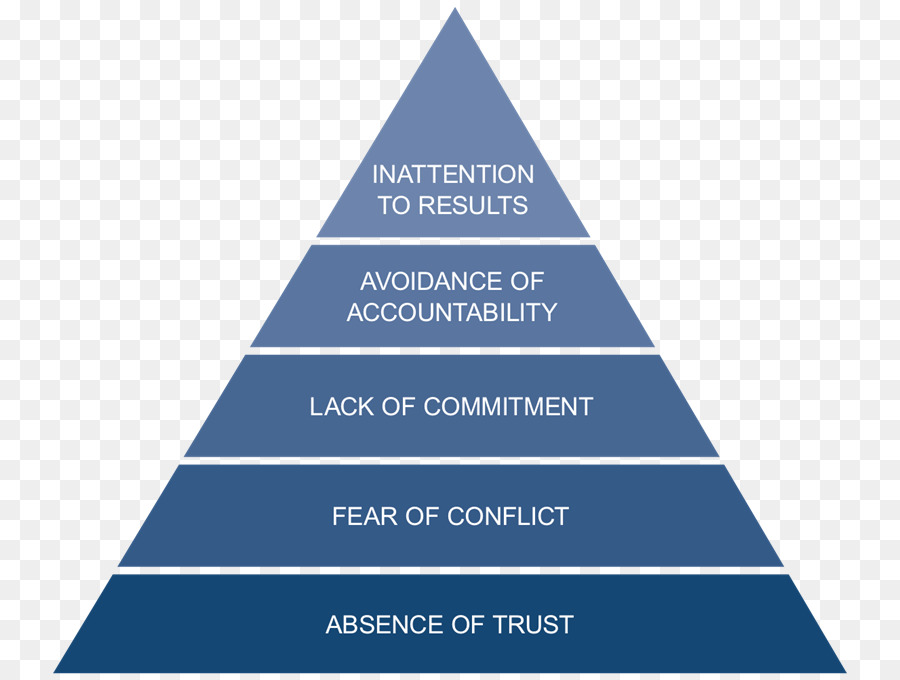 Guess what happened next? Her career advancement has stalled tightly. She lost confidence in herself and became afraid to express her own point of view if it differed from the opinions of others.
Guess what happened next? Her career advancement has stalled tightly. She lost confidence in herself and became afraid to express her own point of view if it differed from the opinions of others.
Betsy came to see me with a severe panic disorder that made her unable to drive. Due to the fact that she was afraid of the onset of another panic attack, her husband and friends were forced to give her a ride all the time.
During the treatment, I taught her how to act correctly in conflict situations. I taught her how to "face" these men and not run away from them. Over time, she again began to speak at meetings, began to defend her point of view. The authorities again began to glance in her direction with approval.
It is extremely important to learn how to calm your basal ganglia. Otherwise, your life will be subject to anxiety and behavioral programs that have been formed in the distant past.
Fear of feelings
Fear of feelings Like Tara, the girl we talked about at the beginning of the chapter, many children with autism spectrum disorders and other developmental disabilities tend to fear emotions such as upset because they are overwhelmed by these emotions and are afraid. 0003
0003
Fear of speed
Fear of speed Iron Horse is not for you. You already understood this and do not drive a car. But sometimes you have to trust your life to others. Order a taxi, get on the bus, go with your relatives, acquaintances. What to do to quench fear? Nothing! You are
Fear of water
Fear of water This fear is definitely from childhood. Well, or from a past life, if you like ... A person must initially trust the water, now children are taught to swim already in infancy, and they do it easily, naturally. Because they do not understand that water can "absorb" them, that
Fear of mistakes
Fear of mistakes Our ability to cheer ourselves up is also limited by the fact that we are often afraid of making mistakes. Let's explore the problems that arise when we do not allow ourselves to make mistakes. A woman came to us for a consultation and said that she often
A woman came to us for a consultation and said that she often
Stage fright
stage fright There is a wealth of clinical and experimental evidence of how mental training can help ensure success in public speaking. I was once approached by a well-known talented actress who periodically had a “fear of
4. Fear of women
4. Fear of women As noted above, Fetcher relates attitudes to children's sexual curiosity to the choice between joint and separate parenting of children of different sexes. He is for co-education - to eliminate the mystery of the opposite sex. All
Fear of the subconscious
Fear of the subconscious The problems encountered in Henry's first dream appeared later in other dreams: the fluctuation between the activeness of the masculine and the passivity of the feminine, and the tendency to hide behind intellectual asceticism. He was afraid of the world, but the world
He was afraid of the world, but the world
Fear of ruin
Fear of ruin During periods of economic instability, people are always afraid of losing their jobs or their savings. Such worries can cause quarrels over money and often create many problems: illness, depression and sexual dysfunction. Fear of losing
Fear of being alone
Fear of loneliness If your child has grown up, it is worth considering: how ready are you to live for yourself, with your own interests? What is the nature of your altruism: can you become a support for your child in adulthood, but on completely different conditions, or are you just
Fear of frankness
Fear of frankness In general, hypersensitivity greatly contributes to communication in close relationships.

